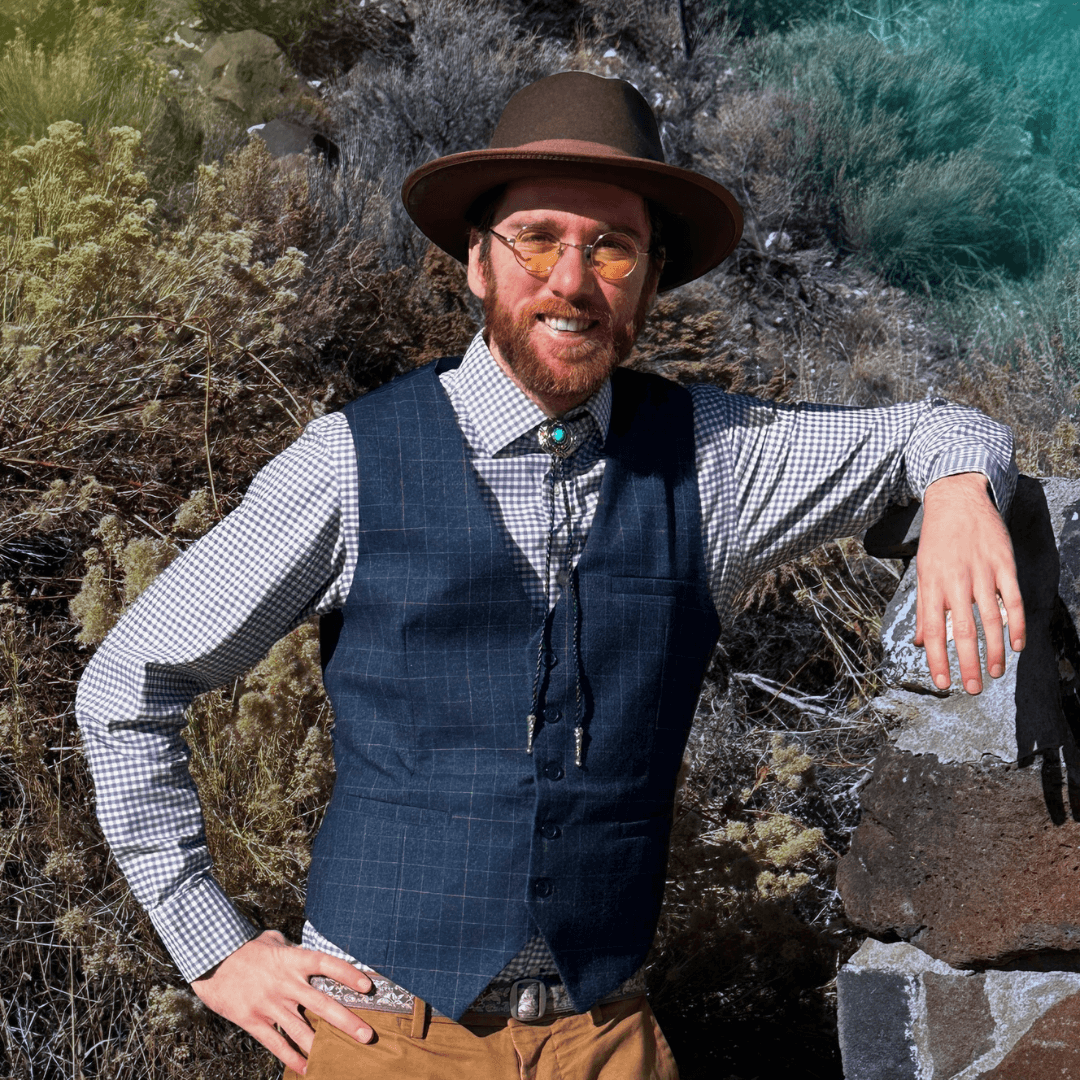Welfarists or Abolitionists? Division Hurts Animal Advocacy

The following blog post is an opinion piece written by ACE’s Executive Director, Jon Bockman. It is not meant to convey ACE’s official stance on these issues. For a Spanish translation of this post, please see ¿Bienestaristas o abolicionistas? Por qué la división perjudica a los animales.
Gary Francione recently posted a reaction to a PR release he received from Mercy For Animals, one of ACE’s top recommended charities. In it, he criticizes their release as being “morally repugnant,” and goes on to cite specific examples of wording that he disagrees with. As several people have mentioned this to me and asked for my reaction to it, I am writing this post.
Francione’s post misses a major point of consideration; namely, that many of the groups he demonizes as supporting welfare reforms are advocating for abolition. They simply believe in a varied approach to achieving that goal. Just because some groups advocate for welfare improvements as a way to get their foot in the door with the public or corporations doesn’t mean that they have any desire to legitimize the use of animals. Rather, they believe, as has been my personal experience during my time in grassroots activism, that people are more willing to listen to your points and arguments if you meet them where they stand.
Francione seems primarily concerned with how we would behave in a world where we could convince people to go vegan if only we just eschewed all welfare conversation. This idealized world view misses the mark when it comes to reducing suffering and ultimately doing what is best for as many animals as possible.
Francione analyzes specific language used in the MFA press release, criticizing the use of terms like “respect,” “protect,” and “needless suffering,” while arguing that the press release should contain the word “vegan.” He also asserts that “so-called animal advocates suggesting that cage-free barns are not ‘cruel and inhumane’ is nothing short of a betrayal of nonhuman animals.” He does not agree with MFA’s use of conventional marketing tactics to meet people where they are rather than to demand a radical change in perspective, and his viewpoint ignores the gains that can be made be using MFA’s approach. Animal advocates who have been immersed in the advocacy movement for long periods of time tend to forget what it’s like to be on the other side.
My personal experience illustrates the value of such marketing strategies:
During my final semester, while walking by one of my regular class halls I heard someone call out, “Help stop violence?” Looking up, I saw a leafleter for Vegan Outreach (Joe Espinosa). His booklet had a few pictures of chickens in battery cages and pigs in gestation crates on the cover. Because I knew that regardless of my disdain for PETA or other animal activists, I didn’t want to support such obviously extreme cruelty, I took a leaflet. The cover said: “If everyone just cut their meat consumption in half, billions of animals would be spared from suffering.” That message hit me like a ton of bricks; I read the pamphlet, did some research online, and decided I was going to change. For four days/week, I wasn’t going to eat meat.
The following month, after realizing that it wasn’t that hard to avoid meat, I decided to become vegetarian. I tried to be an ethical vegetarian by buying milk and dairy from “free-range” farms, but as I became part of the vegetarian culture, I started finding new friends and new information, and I realized that I couldn’t consume those products and still maintain my beliefs that animals were not ours to use. So, after about a year as a vegetarian, I went vegan.
Soon thereafter I started leafleting; holding protests, demonstrations, food sampling events, and pay-per-view events; making library displays; speaking at colleges: you name it, and I was doing it. Analyzing all of these different methods is a task for another day, but suffice to say that the reductionist approach employed by Vegan Outreach turned me into a full-fledged vegan animal activist. Now it’s my career and I donate at least 10% of my net income to animal charities.
My point in covering my experience in such detail is to show the progression that occurred for me, and that also occurs in many other people. Would I have responded to wording that told me I was part of the problem if I only reduced consumption, or wording that told me the only answer was to be vegan? I find it highly unlikely.
Are cage-free operations perfect? Of course not. But would the animals benefit if we were to take the moral high ground and highlight all the suffering that takes place in cage-free facilities, instead of encouraging people who are taking steps in the right direction? In my view, no. I’ve had much more success in my line of work (including leadership positions in five different animal advocacy fields, all which involved interactions with the public) using positive reinforcement.
Francione goes on to criticize Whole Foods for setting Farm Animal Compassionate Standards, as well as the animal advocacy groups that support them. This short-sighted viewpoint denounces the fact that an enormously successful grocery chain has taken active measures to improve the treatment of animals, simply because their actions don’t fit into perfect vegan idealism. In addition to reduced suffering for animals, these efforts bring the treatment of farmed animals into the realm of public discussion; people thinking about where their food comes from is undoubtedly a step in the right direction, and necessary for further behavioral change.
Should we should only promote welfare reforms, or should we only preach abolition? That’s the wrong question. Clinging to a single strategy to appeal to all people is inefficient, and condemning groups that employ different strategies as “betrayers of animals” is simply counterproductive.
We shouldn’t make our decision and stick to it like grim death. We need to take an adaptive approach that uses different tactics for different people. We certainly shouldn’t waste our valuable time attacking other groups that are also advocating for animals, and instead should focus our efforts on the businesses that commit abuses against animals, and on changing public perception of animals being ours to use. We should reward businesses that try to help animals, even if the changes they make are small. We help spread veganism and concern for animals when we support steps in the right direction, not when we criticize them for not going far enough.
Ultimately, I ignore ideology and try to do what’s best for animals. I have no doubt that most people reading this also want to do what’s best for animals. Demonizing groups that work for welfare reforms as a step to a society that cares more about animals might make us feel morally superior, but it is counterproductive and actively hurts progress for animals. We need to focus all our energy on the task at hand: changing society’s view towards animals. Then, and only then, are we doing what’s best for animals.
About Jon Bockman
Jon has held diverse leadership positions in nonprofit animal advocacy over the past decade. His career prior to ACE included serving as a Director at a shelter and wildlife rehabilitation center, as a humane investigator, and as a Founder of a 501(c)3 farm animal advocacy group.
ACE is dedicated to creating a world where all animals can thrive, regardless of their species. We take the guesswork out of supporting animal advocacy by directing funds toward the most impactful charities and programs, based on evidence and research.
Join our newsletter
Leave a ReplyCancel reply
Comments





I agree with your comments totally.
I have a problem with GF’s approach, but not necessarily his ideology.
In fact I view how his supporters, well some, use shame and blame to spread his ideology accross the internet. In some apologist webpages, I would call the approach to other vegans (who abolitionists call non-vegans, some go as far as calling fellow vegan murderers and rapists), hugely problematic as I feel it’s actually online abuse.
‘Trolling means intentionally upsetting, shocking or winding up selected individuals, groups of people or a more general audience who are usually people not known to the troll’
the above quote is from a website called ‘Get Safe Online.’
I didn’t really bother about the abolotionist’s approach to spreading their message, until I met some abolitionists, who I found were not very nice, cold calculating, highly manipulative and emotionally abuse in their personal lives. So it lead to me looking into what interests them about the abolitionist approach and why veganism appeals to them.
After understanding how they challenge people, it dawned on me why the people I met were drawn into it, and the realisation was a difficult pill to swallow.
I informed the police over the phone some years ago to inform them of what is happening, and I have again informed them online.
They will investigate it, as it could be considered extremism, especially if it involves online abuse, but in reality I doubt nothing will get done.
sometimes, we need to see things for what they really are, is it online abuse, or is that person actually wants me to become a better vegan.?
And I guess that’s what the question we have to ask ourselves, just to protect our safety online, when we might get drawn into these types of arguments with different types of vegans.
Problem is, research tells us that it’s people with a high level of empathy that are more likely to become vegan, amongst over things (care for the environment), but with every ideology, there is always the extreme side to it, where the message might be justified, but will attract certain personality types who are, lets say, unstable, who will use it to belittle others, usually highly emphatic people, for their own needs, rather than wanting the world to actually become vegan.
Stay safe, stay strong, and if you want to be anything in this world, be kind.
“This short-sighted viewpoint denounces the fact that an enormously successful grocery chain has taken active measures to improve the treatment of [non-human] animals, simply because their actions don’t fit into perfect vegan idealism.”
You claim you advocate for anti-speciesism in your FAQ section. Do you not realize that anti-speciesism unquestionably implies a strict commitment to veganism? (See: https://www.smashwords.com/books/view/539674)
Veganism is a precondition and a first step toward anti-speciesism, not the other way around.
Whether direct advocacy for veganism is the best way to achieve a vegan world is then another question, but I would argue that it is.
Also, you may object that from a utilitarian perspective, the “better treatment” effort from whole foods et al that you sort of defend here does make sense. Yet, as I have argued in the essay ‘Why “Happy Meat” Is Always Wrong’ (link: https://www.smashwords.com/books/view/435640), this “better treatment” notion is exactly what should be rejected, and with urgency, from a utilitarian perspective. The idea that we can kill and eat sentient beings of other species as long as they have lived good lives is a profoundly speciesist one, and one that leads to more suffering rather than less (again, see the essay).
Notice that this is not a matter of devotion to some principle for its own sake, or of being a blind follower of Francione (if you read my book on speciesism, you will see that I don’t at all agree with him on the really, really big issue). No, it *is* about minimizing suffering. The division that really hurts “the movement” is the one so commonly drawn between a strict commitment to veganism (and advocacy of this) and “the best way to reduce suffering.” I see no dichotomy.
Sorry for simply posting links, but the reasons why I think you are confused are many and require elaboration, and that is found in the essays I linked to.
Right on, Jon! People need to be met where they’re at, not where you’d like them to be already. And making them feel like monsters because of where they’re at is just not an efficient strategy. Anyone who knows anything about psychology knows that change is progressive, and that we have limited bandwidth for such change in our busy lives. I’ve been talking to friends about my own vegan choice for only a couple of months, gently, adapting my message to their personal situations, and already four of them have curbed their meat eating significantly. Had I banged them on the head letting them know they’re just the puppets of a sexist, racist, homophobic flesh eating Machiavellian system of government (I’m riffing on some of a famous abolitionist’s rhetoric), I think they would actually have increased their meat consumption and sent me to hell. The greatest successes in activist negotiations seem to come from really listening to your audience, not listening to yourself wax vitriolic–take it from the Martha Davis playbook. Her ability to really listen to “the other side” allowed her to help solve their problems and in so doing, to gain their cooperation to save Mono Lake. A feat that no other had achieved before.
you quoted ‘making them feel like monsters’
and I know what you mean by that, as abolitionist vegans had come to my attention, and my niece, who is fairly young, has just become a vegan, so of course, I wanted to check out this abolitionist stance on things.
Although I found it hard to disagree, I didn’t really get their message anyway, because the way people attack each other, and even dismiss people’s identity, people who call themselves vegan, get told you are not a vegan and have even implied, in some online conversations that they are a murderer or a rapist grabs your attention more than the actual message.
And of course, do I want my niece, to be called a murderer or a rapist? No of course not. I have a need to protect her, so I will make her be aware of the abolitionist ideology, but warn her of the abolitionist approach of getting on board.
So, I’m glad there is many many more sites that other people see, but have also been affected by, that particular approach. I will also direct to these sites too because I want her to stay safe online, particularly given her age.
What baffles is they say ‘the world is vegan if you want it’, but it doesn’t feel to me, that the abolitionists actually want other vegans in their group, because if anyone, even if they agree and call themselves an abolitionist, but slightly disagree with what one of them has said, they will get accused of various things, stemming from their lack of intelligence, their morality, and will get told they are not a vegan.
So for me, to deliberately try to get people to not become a vegan by attacking people, I feel their intention is not for the world to become vegan, rather they want to keep it a very small group, who support and prop each other up to attack anyone who dares to comment on their web pages.
Unfortunately, I have met someone who was an abolitionist who, I felt, was very well meaning, but two others I met in person, where very highly manipulative people, and I would go as far as saying ‘dangerous’.
And yeah, that’s why I needed to check it out for myself. The truth some people, it might be a very small number, there agenda is not for others to become vegan I feel.
The problem with ideologies that are based on an empathic stand point (religion, equality, veganism etc), there is always an extreme part to it (religion – ISIS, equality – communism, veganism, abolitionism.
And if people who feel superior anyway, do tend to grasp onto the more extreme points of view, to appear more morally superior than others in that same group.
So what you have with religion, the rules get stricter, if a muslim women is wearing a hard scarf and not a burqa, she could get killed by ISIS, the extreme end of communism is dictatorship, the extreme form of veganism is abolitionist.
And people, innocent people, might get caught up in these groups as they appear to have a higher level of morality, but it also attracts certain personality types that, often take over, and what happens then is oppression.
Interesting I see this post today. Yesterday I purchased some of Gary Francione’s books. Today I called and stopped my monthly donation to Mercy for Animals. I decided to put my money to rescued circus animals sanctuaries. I’m confused and do not know where it does the most good. I just want to help make an impact and help.
Thanks for thinking about how you can do the most good! Animal Charity Evaluators has great resources for helping you maximize your impact. Right now we believe farm animal advocacy to be the area with the highest potential gains, and we use our detailed evaluation criteria to provide recommendations of effective charities. As you can see from our list of top charities, we think MFA does excellent work. Please see our full review for further information, and feel free to contact us if you have additional questions.
right on!
i’ve taken some time and posts to make my criticism of francione explicit, as i too many people uncritically accept everything francione says and never see any counterarguments against his arguments.
here’s one:
https://vegansapiosexual.wordpress.com/2015/03/02/on-gary-francione-and-the-abolitionists-1/
Important points to make Jon, so thank you. Most changes in behavior and belief are progressive, not real rapid. So asking current meat eaters to take the first step or most impactful yet still seemingly doable step is more helpful to animals than highlighting and celebrating our moral baseline or worldview as vegans.
I have seen over many years of involvement in animal rights that different organizations sometimes tend to disagree intensely and fragment the movement. I approve rather organizations that work together to achieve change despite their differing viewpoints on important matters. Those purists that split off into their own pristine directions accomplish much less actual change.
Advocating for welfare “reforms” doesn’t change society’s view of non-human animals. Instead it reinforces the belief that animals are here for our use but that we just need to be less brutal to them while using and killing them. The whole “foot in the door” theory may work if we want people to take some minor and inconsequential action. But it doesn’t translate to what we are asking them to do in regard to their views and treatment of non-human animals.
If we truly want to change society’s attitude about other animals, we need to show that we, as animal advocates, don’t endorse using them in any way. We need to educate the public about speciesism and actively work to abolish the speciesist lies that other animals are inferior to humans and are here for our use. To think we can create a non-speciesist world without discussing speciesism and calling for a rejection of speciesist views and behaviors is ludicrous.
I warmly support any and all steps taken by my family and friends while sharing my own view that NO animal use is acceptable. On behalf of non-human animals, I sincerely appreciate Professor Francione’s view of veganism as a moral duty with no wiggle room. Slavery abolitionists did not advocate for Slavery-Free Mondays.
I can’t think of ANY great social movements that changed overnight.
The freedom and civil rights of African Americans took
OVER A CENTURY (and STILL has a ways to go)–first was
ending the “slave trade”, next was the abolition of slavery,
and , lastly, the civil rights movement.
If, in the 1830s (when good-hearted people were working
hard to end the HORRIBLE practice of slave-trading from
Africa), they had insisted that ending the slave trade would
still leave slavery and injustice in place, and they would not settle for anything other than full freedom and civil rights!
HONESTLY, how far do you think THAT APPROACH would have gotten them at that time???
In the early 1800s, Great Britain had OVER 100 capital crimes.
Over the next 150 or so years, capital punishment was
GRADUALLY reduced–fewer capital crimes, more humane executions, and the banning of public executions.
It wasn’t not until the late 1960s that the death penalty was TOTALLY abolished in Britain.
Need another example?
Before the 1970s, gays in the US were routinely discriminated against in jobs and housing, and were even
in danger of being charged with A FELONY just because of who they were.
Progressives back then worked for INCREMENTAL reforms.
I don’t remember a single group saying that, unless gays were immediately granted full equality (including MARRIAGE EQUALITY), those progressives were wrong and only “hurting the cause”.
NEWSFLASH–VERY FEW PEOPLE are going to go TOTALLY VEGAN anytime soon!
“abolitionist” groups who refuse to accept this and denegrade animal welfare groups that are currently working hard to RAISE AWARENESS and take STEPS to REDUCE ANIMAL SUFFERING are only HURTING animals and HELPING animal-exploiters in making the animal rights
movement look bad.
Great post, Jon. Thanks for sticking your neck out!
Great read Jon, thanks!
In my opinion, welfare reforms are an indicator of a larger social change in favor of the animal rights movement.
I think the Transtheoretical Model of Behavioral Change, which is often applied to social change initiatives, is an appropriate model to use. The contemplation and preparation stages are fundamental to the success of behavior change and maintenance. Small, incremental changes (such as welfare reforms, or personal dietary changes) are just part of the process.
The Situational Theory of Publics can then be used to define the elements contributing to the success (or failure) of behavioral change:
Level of Involvement: The extent to which an audience feels that the situation affects them personally, and to what extent they connect themselves to the cause.
Goal compatibility: degree by which the audience agrees with the goals of the organization or overall social movement.
Problem recognition: extent to which an audience recognizes that there is an existing problem, and that something has to be done about it.
Constraint recognition: extent to which an audience identifies obstacles that may affect their ability to do something about a situation or problem.
Constraint recognition is negatively correlated to the other characteristics. And I think that welfare reforms (and small, incremental dietary changes) lower the constraints significantly.
Great post, Jon. 🙂 I appreciated your personal anecdote and the link to the survey of vegans. Like you, I also used to dislike animal activists based on my superficial impressions of them: http://reducing-suffering.org/my-personal-reactions-to-confrontational-animal-activism/
Gary Francione is nothing but a bully. He doesn’t even advocate for animals. All he talks about is how everyone but himself is a complete idiot. I think people should just ignore him, like he ignores evidence about effective animal advocacy.
I agree with you Austen. He and his followers aren’t interested in debates or dissection of his theories – his goal is for everyone to submit to his particular conclusion – by berating others – on how to advocate for animals. It is better to ignore him/them at this point rather than spend that energy away from focusing on the animals in ways you’ve concluded are effective.